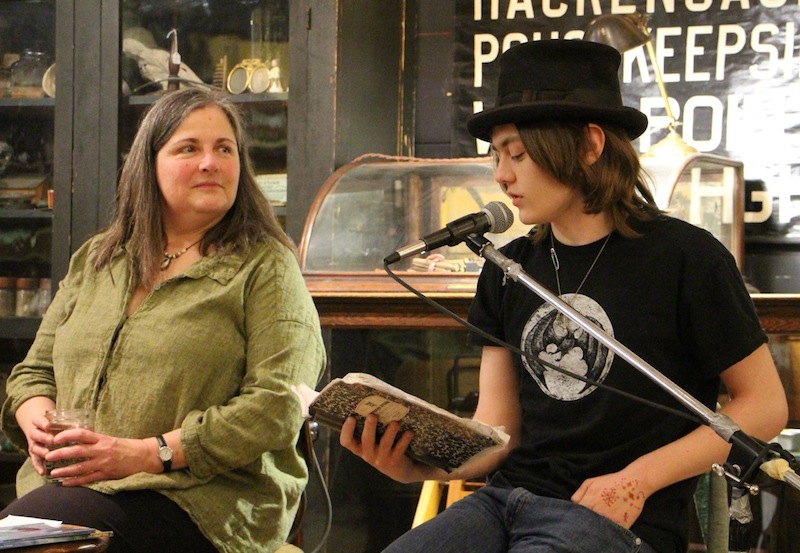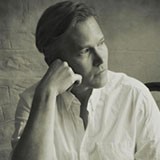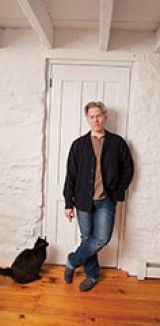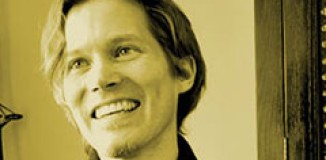May 14, 2015
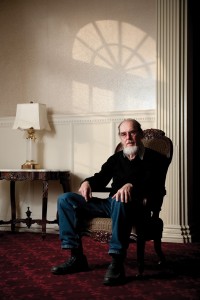
Read Nina Shengold’s Chronogram profile
Photo credit: Jennifer May
The Dublin-born poet and Vassar professor emeritus read five of his own poems: “Painter’s Diary,” “Swifts Over Dublin,” “Landscape With Teeth,” “Detail,” and “The Horse at Hand” (all but the last in his Out of Sight: New & Selected Poems), interleaving the poems with observations about their construction and our topic for the evening, Detail.
Eamon described “Painter’s Diary” as “a litany of what I could see,” likening it to collage, a medium he loves because “it forces a curious breakage–it breaks the logic, the linear.”
On “Swifts Over Dublin”: “All we’re trying to do is word the world. Detail is one way we do that. We enumerate, notate, name the things seen.”
“Landscape Over Dublin” led to a riff on how to get out of a poem; he observed that he doesn’t know exactly what the final lines mean.
He described the prose poem “The Horse at Hand” as “another example of things piling up,” noting that it starts with a list of negatives, what the subject is not.
Of “Detail,” he said, “It’s really only about paying attention. You’re concentrating on craft, and suddenly, out of left field, the poem is telling you something else.” He used to tell his students at Vassar that poems need to have both data and rapture. “They have to be grounded and also able to levitate.”
Eamon often sets himself specific challenges: finish a poem every day for two years, then go back to see what you have and do a lot of editing, converting them all into poems of 13 lines (“disappointed sonnets”). These formal constraints, he says, give him “something to kick against.”
He also suggested reading writers’ journals and letters (Thoreau, Gerard Manley Hopkins, Keats, Wallace Stevens), looking at paintings, and going on walks. “When you don’t know what to do, you just set off,” he said. “Don’t think. Look. If you look hard enough, the thinking will come.”
THE EXERCISES:
Eamon read Czeslaw Milosz’s poem “Gift,” which has, he says, “a kind of lift at the end.”
He asked us to start a poem with the line “It was that kind of day:”, write five more lines, and end with “Just ordinary light.”
Nina’s exercise: Describe an object in this room in vivid detail, without using any visual references at all. Since most of us rely on sight to describe the world, this is a way to stimulate the other senses. How does this object smell, sound, feel, taste? What does it do or suggest?
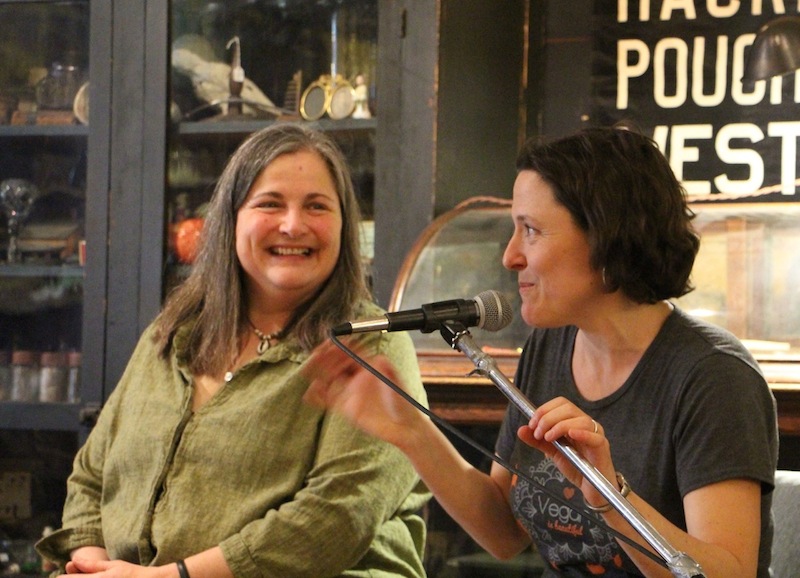 Gretchen Primack treated a rapt group to a reading of poems in many forms: sonnets, haiku, iambic pentamenter in tercets, a suite of Yiddish-inflected limericks, an ekphrastic poem (i.e. inspired by another art form) and “a form only real poetry nerds will know,” a paraclausithyron, or lament sung through a lover’s locked door. She found this and other deliciously obscure forms in
Gretchen Primack treated a rapt group to a reading of poems in many forms: sonnets, haiku, iambic pentamenter in tercets, a suite of Yiddish-inflected limericks, an ekphrastic poem (i.e. inspired by another art form) and “a form only real poetry nerds will know,” a paraclausithyron, or lament sung through a lover’s locked door. She found this and other deliciously obscure forms in 